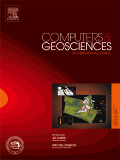
COMPUTERS & GEOSCIENCES
Scope & Guideline
Innovative Insights at the Intersection of Earth and Technology
Introduction
Aims and Scopes
- Computational Modeling and Simulation:
The journal publishes research on computational methods and models that simulate geological and geophysical processes, including fluid dynamics, heat transfer, and material behavior in the earth's crust. - Machine Learning and Data Science Applications:
There is a strong emphasis on the application of machine learning and artificial intelligence techniques to analyze geological data, improve predictive models, and automate processes such as image classification and anomaly detection. - Remote Sensing and Geospatial Analysis:
Research focusing on remote sensing technologies and geospatial data processing is prevalent, covering topics such as image segmentation, change detection, and 3D modeling of geological features. - Geophysical Inversion and Analysis:
The journal includes studies on inversion techniques for geophysical data, such as seismic and electromagnetic methods, aimed at characterizing subsurface structures and properties. - Interdisciplinary Approaches in Geosciences:
Emphasizing collaboration across disciplines, the journal encourages research that integrates geosciences with computer science, physics, and engineering to address complex environmental and geological issues.
Trending and Emerging
- Deep Learning and AI in Geosciences:
There is a notable increase in the application of deep learning and artificial intelligence techniques to various geoscience problems, such as image classification, anomaly detection, and predictive modeling, showcasing the transformative impact of these technologies. - 3D Geospatial Modeling and Analysis:
Research focusing on three-dimensional modeling of geological structures and processes is gaining traction, with advancements in computational methods allowing for more accurate and detailed representations of subsurface geology. - Integration of Big Data Analytics:
The incorporation of big data analytics in geosciences is emerging as a critical theme, with studies exploring how large datasets can be leveraged to improve modeling, forecasting, and understanding of geological systems. - Geophysical Data Inversion Techniques:
There is growing interest in advanced inversion techniques for geophysical data that enhance the accuracy of subsurface characterization, reflecting a trend towards more sophisticated modeling approaches. - Sustainable and Environmental Applications:
Research addressing sustainability and environmental challenges, such as climate change impacts and resource management through computational approaches, is becoming increasingly prominent, indicating a shift towards applied geoscience with societal relevance.
Declining or Waning
- Traditional Statistical Methods:
There seems to be a waning focus on conventional statistical methods for data analysis, as researchers increasingly prefer machine learning and data-driven approaches that offer greater flexibility and predictive power. - Basic Geostatistics:
The use of basic geostatistical techniques appears to be declining, possibly due to the rise of more sophisticated modeling techniques and machine learning algorithms that can handle complex datasets more effectively. - Fundamental Theoretical Studies:
There is less emphasis on purely theoretical studies in geosciences, as the journal leans towards applied research that demonstrates practical applications of computational techniques in real-world scenarios. - Generalized Geophysical Surveys:
Research focusing on generalized geophysical surveys without a specific application context is becoming less common, with a shift towards targeted studies that address specific geological challenges or phenomena. - Low-Resolution Remote Sensing Techniques:
The journal is moving away from low-resolution remote sensing techniques as advancements in high-resolution imaging and analysis methods become the preferred choice for geoscientific investigations.
Similar Journals

NEW GENERATION COMPUTING
Driving Excellence in Dynamic Computing DisciplinesNEW GENERATION COMPUTING is a prominent academic journal published by SPRINGER, specializing in the dynamic fields of Computer Networks, Hardware and Architecture, Software Engineering, and Theoretical Computer Science. With a commitment to disseminating high-quality research since its inception in 1983 and extending its coverage to 2024, this journal occupies a vital role in advancing knowledge and innovation within these critical domains. Holding prestigious Q2 rankings in Computer Networks and Communications, Hardware and Architecture, and Software, as well as a Q3 ranking in Theoretical Computer Science for 2023, NEW GENERATION COMPUTING attracts significant contributions from scholars and professionals around the globe. Researchers will find its rigorous peer-review process ensures the publication of impactful studies, while students gain access to cutting-edge research that shapes contemporary computing practices. Though it does not offer open access, the journal remains an invaluable resource in the academic community, fostering collaboration and dialogue among experts aiming to push the boundaries of technology.
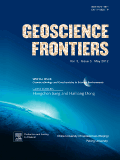
Geoscience Frontiers
Exploring Frontiers in Earth and Planetary SciencesGeoscience Frontiers is a premier open-access journal that has been at the forefront of disseminating impactful research in the field of Earth and Planetary Sciences since its inception in 2010. Published by China University of Geosciences, Beijing, this journal operates from the Netherlands and has gained recognition for its rigorous peer-review process and high standards of scholarship, earning a distinguished position as Q1 in the Earth and Planetary Sciences category. With a Scopus ranking of 5 out of 195, placing it in the 97th percentile, it reflects the journal's commitment to addressing global geological challenges and advancing our understanding of the Earth’s dynamic systems. As an open-access platform, Geoscience Frontiers ensures that vital research is widely accessible, fostering collaboration and innovation among researchers, professionals, and students alike. By providing a forum for cutting-edge discoveries and theories, the journal plays a critical role in shaping the future of geoscientific research and education.
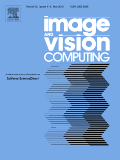
IMAGE AND VISION COMPUTING
Elevating academic discourse in image and vision computing.Image and Vision Computing, published by Elsevier, serves as a leading international journal focused on the dynamic fields of computer vision, pattern recognition, and signal processing. With its esteemed Q1 category rankings in these areas and an impressive standing in Scopus metrics, where it ranks 19th in Computer Vision and 23rd in Signal Processing, this journal has firmly positioned itself at the forefront of academic research and innovation. Established in 1983, it continues to publish cutting-edge research that drives advancements in technology and applications across various domains. The journal is committed to disseminating high-quality, peer-reviewed articles that address significant challenges and propose novel solutions, making it an essential resource for researchers, practitioners, and students alike. While not an open access journal, Image and Vision Computing offers a wealth of valuable insights into the ever-evolving landscape of visual computing technologies.
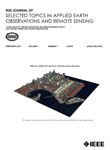
IEEE Journal of Selected Topics in Applied Earth Observations and Remote Sensing
Transforming Environmental Challenges into Research Opportunities.IEEE Journal of Selected Topics in Applied Earth Observations and Remote Sensing is a premier peer-reviewed journal published by the IEEE-INST ELECTRICAL ELECTRONICS ENGINEERS INC, focused on advancing the field of Earth observation and remote sensing technologies. With an impressive impact factor, this journal ranks in the top quartile (Q1) for both Atmospheric Science and Computers in Earth Sciences, underscoring its significance and influence in the academic community. Open access since 2020, it facilitates broader dissemination of research findings to enhance global visibility and accessibility for researchers, professionals, and students alike. Spanning the years from 2008 to 2024, the journal covers a myriad of topics that highlight innovative applications of remote sensing data and technologies in addressing environmental challenges. With a Scopus ranking placing it in the 91st and 89th percentiles, respectively, in its categories, the journal serves as a vital resource for advancing scholarly discourse and collaboration in Earth sciences.
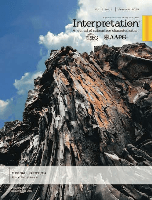
Interpretation-A Journal of Subsurface Characterization
Exploring Innovative Solutions for Subsurface CharacterizationInterpretation: A Journal of Subsurface Characterization is a premier academic journal dedicated to advancing the methodologies and technologies integral to the characterization of subsurface environments. Published by the Société de l'Exploration Geophysicists (SEG), this journal serves the fields of geology and geophysics, reflecting its critical role in the intersection of these domains. With an h-index that underscores its scholarly impact and its ranking in the Q2 category for both Geology and Geophysics, Interpretation is recognized for publishing high-quality, innovative research that offers valuable insights and solutions to contemporary challenges in subsurface exploration. Since its inception in 2013, the journal has quickly become essential reading for researchers, professionals, and students alike, providing open access to a wealth of knowledge fostering collaboration and advancement within the geoscience community. Featuring a comprehensive range of studies, methodologies, and reviews, Interpretation is integral for professionals striving to enhance their understanding of subsurface dynamics and impacting areas such as resource management, environmental conservation, and hazard assessment.
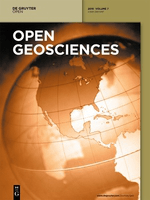
Open Geosciences
Advancing Knowledge in Geosciences for All.Open Geosciences, published by DE GRUYTER POLAND SP Z O O, is a prominent open access journal that has been serving the scientific community since its inception in 2015. With an ISSN of 2391-5447, this journal focuses on the dynamic fields of Earth and Planetary Sciences as well as Environmental Science, securing a commendable Q2 ranking in both categories as of 2023. Situated in Germany, Open Geosciences is committed to disseminating high-quality research and facilitating innovative discussions surrounding geosciences. The journal embraces a diverse range of topics, aiming to foster collaboration among researchers, professionals, and students worldwide. As an open access publication, it enhances visibility and accessibility of its articles, allowing for greater engagement within the global scientific community. This is further substantiated by its respectable Scopus rankings—77th out of 195 in General Earth and Planetary Sciences and 97th out of 219 in Environmental Science—which underscore its significance in advancing geoscientific knowledge. Whether you are a researcher looking to publish your findings or a student seeking valuable insights, Open Geosciences stands out as a crucial resource in the exploration of our planet and its environment.
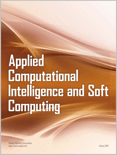
Applied Computational Intelligence and Soft Computing
Unleashing Potential through Soft Computing TechniquesApplied Computational Intelligence and Soft Computing, published by HINDAWI LTD, is a premier open access journal that has been disseminating critical research since 2009, focusing on the intersection of artificial intelligence and soft computing. With an impressive array of quartile rankings in 2023, including Q2 in Civil and Structural Engineering and Computational Mechanics, this journal has established itself as a significant contributor to the fields of computer science and engineering. Based in Egypt, it plays a vital role in advancing knowledge by providing researchers, professionals, and students with easy access to high-quality studies. The journal’s rigorous peer-review process ensures that only the most impactful research is highlighted, making it an essential resource for those looking to stay abreast of the latest innovations and methodological advancements in applied computational intelligence. Its Scopus rankings further affirm its influence and reputation within the academic community, exemplifying its commitment to facilitating collaboration and fostering intellectual discourse in various scientific domains.

Applied Computing and Geosciences
Advancing Knowledge at the Nexus of Computing and GeosciencesApplied Computing and Geosciences, published by Elsevier, is an esteemed open-access journal that has been pivotal in the dissemination of research since its establishment in 2019. With an ISSN of 2590-1974 and an impressive impact factor reflective of its high citation rates, this journal occupies a vital space in both the Computer Science and Geology domains, ranking in the Q2 category for both fields as of 2023. The journal’s scope encompasses innovative research that intersects computational methods with geoscientific inquiries, making it an essential resource for scholars and professionals dedicated to advancing these interrelated disciplines. As it continues to publish cutting-edge research through 2024, Applied Computing and Geosciences offers extensive open access options, fostering an inclusive academic environment for students, researchers, and industry experts alike. This journal not only serves as a platform for sharing findings but also plays a critical role in shaping future research pathways in the rapidly evolving landscapes of computing and geosciences.

Acta Geodynamica et Geomaterialia
Pioneering Research in Geological and Material BehaviorActa Geodynamica et Geomaterialia is a well-regarded journal published by the Academy of Sciences of the Czech Republic, Institute of Rock Structure and Mechanics. Since its inception in 2004, this journal has established itself as a vital resource within the realms of Geology, Geophysics, and Geotechnical Engineering, categorized in the Q3 quartile across these fields as of 2023. With a focus on innovative research that addresses complex Earth dynamics and material behavior, it provides a platform for scholars and professionals to disseminate their findings and foster academic discourse. The journal holds an important position in the academic landscape, particularly for those engaged in interdisciplinary studies bridging geology and engineering. Although it is not an open access publication, its content remains pivotal for advancing knowledge and practices within these areas, making it an essential read for researchers and students alike. The journal's operational address is located in the vibrant city of Prague, Czech Republic, further enriching its academic character.

Computational Visual Media
Advancing innovation in visual computation.Computational Visual Media, published by TSINGHUA UNIVERSITY PRESS, is a premier open access journal dedicated to advancing the fields of Artificial Intelligence, Computer Graphics and Computer-Aided Design, and Computer Vision and Pattern Recognition. Since its inception in 2015, it has established a robust position within the academic community, consistently achieving Q1 rankings across its categories as of 2023. With exceptional Scopus rankings, including a remarkable percentile standing in the top 10% globally, the journal serves as a vital resource for researchers, professionals, and students eager to explore cutting-edge methodologies and technologies in computational visual media. The journal’s open access format enhances accessibility, fostering global collaboration and dissemination of knowledge, making it an indispensable platform for those at the forefront of innovation in these dynamic fields. The journal is headquartered in Beijing, China, and aims to publish high-quality research that not only contributes to theoretical advancements but also addresses practical challenges within computational visual technologies.